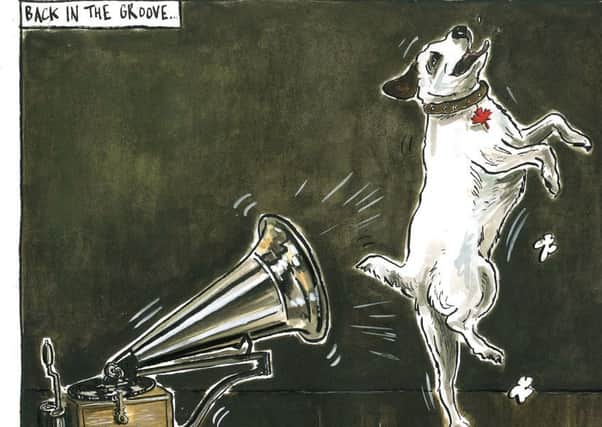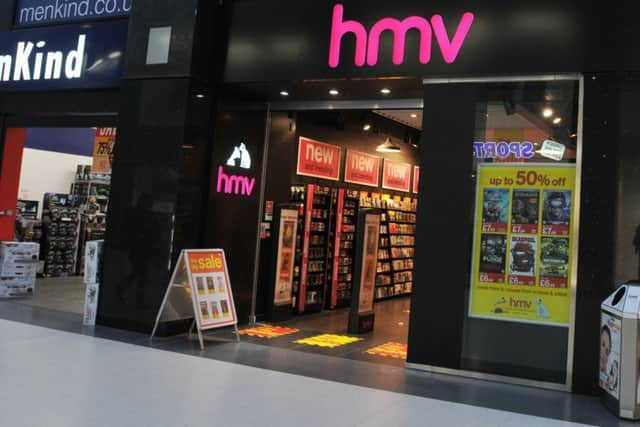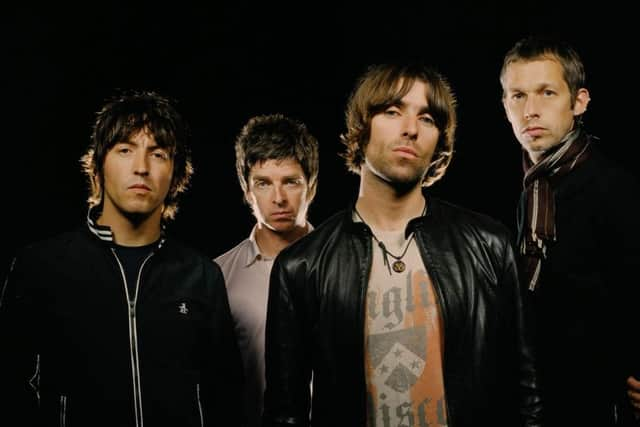Mark Casci: What next for HMV’s dramatic rebirth?


Canadian firm Sunrise Records has proved the white knight in this particular instance. Run by a fanatical collector of vinyl records, it is a chain which both values the physical form of recorded music and the art of successfully bringing the products to market.
HMV was once an absolute bastion of the high street.
With its iconic logo Nipper, listening intently to the sounds from an old-fashioned gramophone, it was a pivotal part of many people’s lives, myself included.
Advertisement
Hide AdAdvertisement
Hide Ad

Nipper summed us all up, loyal and obedient servants to the sounds on which we depended for life itself.
From my early teenage years, no trip to the shops was complete without at least 20 minutes amongst its aisles. This was a golden church of possibility for any young music fan. When funds allowed you could walk out of the store with a piece of vinyl or plastic which, in all probability, could change your life forever.
This was in the golden years of the music industry. HMV and its competitors could routinely charge up to £20 for a new release CD knowing it had a captive market. Music is a drug, and those trapped in the throes of its addiction will do anything to get hold of it. Customers like myself grit our teeth and paid the money. But we never once lost affection for HMV because, after all, where else could we get our fix from?
HMV flew high in the 1990s, replicating the scenes in the music industry at large. Money flowed in like a raging torrent. Whether it was the record label board room, a recording studio or a high street retailer, the period represented a nonstop party which all who revelled in it assumed would last forever.
Advertisement
Hide AdAdvertisement
Hide Ad

Inevitably what goes up must come down. In this case the inevitable comedown and hangover was weighed down heavily by the advent of music streaming on the web.
Music fans, having grudgingly accepted paying over the odds for the works of the artists they worshipped, suddenly found they could access it all for free, usually illegally.
The record industry at large was slow to react. They focused on prosecuting those behind the illegal streaming sites while ignoring the fact that the medium had changed the game beyond any level they could have comprehended.
Soon iTunes and Spotify began streaming music legally and the party was truly over. When the recession hit in 2008-09 music retailers went down. Soon HMV was the last dog standing.
Advertisement
Hide AdAdvertisement
Hide Ad

Fate comes to us all and in 2013 it narrowly avoided disaster when it was bought out of administration by Hilco UK. Knowing that demand for CDs and DVDs was falling like a stone it changed up its offering, filling its vast stores instead with headphones, MP3 players and tshirts. Recently, in an act of supreme irony, it began devoting more space to vinyl as the once mighty format enjoyed a colossal resurgence in popularity.
The latest change in hands will represent a crucial chapter in the HMV story. Sunrise has already signalled it is going to ditch some of the more expensive real estate in its portfolio, with Sheffield’s Meadowhall joining with stores on Oxford Street and the Trafford Centre as causalities.
Physical sales of CDs and vinyl are still a lucrative market, worth circa £2bn a year.
The real question is how can HMV compete in the world in which Spotify and Netflix can offer unlimited access to billions of songs and movies for a monthly cost less than that of the £20 it used to charge for one single CD.